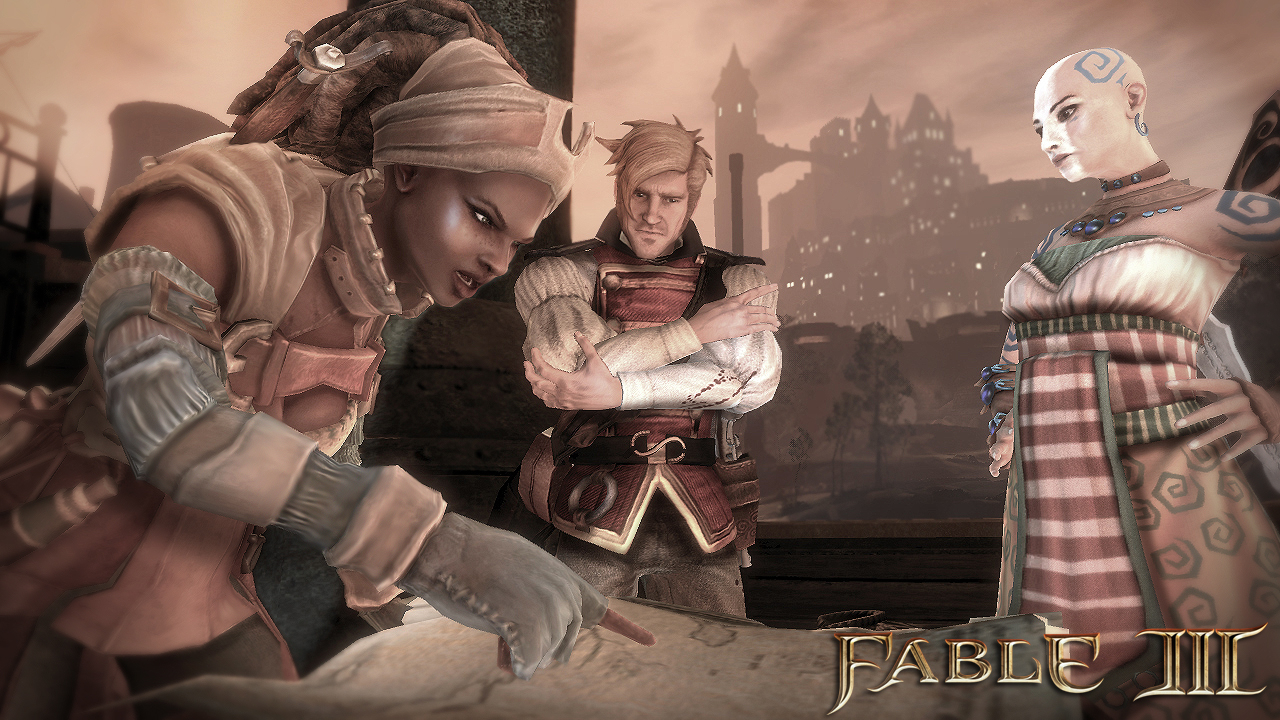

The Black & White development team swelled to 25.īlack & White's development was "chaotic," Charlton Edwards, who spent time at Lionhead in 1999 as a work experience student before coming back in 2002 to work full-time, says.Įdwards had dreamed of working at Lionhead, the studio founded by his hero, Peter Molyneux. In February 1998 Lionhead found an office on Frederick Sanger Road and moved in. Molyneux sought an office in the Surrey Research Park in Guildford, a place somewhat unaffectionately dubbed Teletubby Land because of its man-made green hills. It was a room large enough to house just a handful of people, so it didn't take long before the development team outgrew the space. Work began in the annex of Bargate House, Molyneux's mansion in Elstead. It turned out to be a god game called Black & White. Webley's hamster, Lionhead.Īs part of Molyneux and Webley's severance deal with EA, the pair had agreed to give the publisher first refusal on its first game, whatever it turned out to be. Developers who joined him during the early days of Lionhead include Demis Hassabis, the AI genius whose DeepMind tech recently beat one of the highest-ranking Go players in the world Mark Healey and Alex Evans, who would later leave Lionhead to co-found LittleBigPlanet maker Media Molecule and Jonty Barnes, who now leads production at Destiny developer Bungie. The idea for Lionhead was that it would focus on making high quality games, as Bullfrog had, but avoid falling into the trap of growing too large. "As soon as we called the company Lionhead, my hamster died," Webley says. Molyneux's then girlfriend suggested Lionhead as the name for the studio. Webley had named his hamster Lionhead because of its huge neck and because it looked a bit like a chap who used to pop up at the local pub who had "ridiculous" blonde curly hair.

Then, Molyneux and his co-founders discovered tens of thousands of companies were already using the name. Red Eye it would be as UK video game magazine Edge prepared to visit the new studio and interview the team. The plan was to call the new venture Red Eye, because, as Mark Webley recalls, Peter and Tim had just returned from a gruelling travel stint. Now working under the heel of an American owner, Molyneux longed for creative freedom once again. Molyneux had sold Bullfrog to EA and made millions from the deal.
Fable 3 rare gems Pc#
Lionhead was co-founded in 1997 by Peter Molyneux, Mark Webley, Tim Rance and Steve Jackson, but it was conceived earlier, while Molyneux was at Bullfrog, the ground-breaking PC game maker of Populous, Syndicate and Dungeon Keeper. And they describe a studio created in the image of a man who inspires as much as he frustrates.

They describe a fiercely British culture that benefited - and suffered - from an American overlord hell bent on winning the console war. Those who worked there describe a studio high on the fumes of furious creativity, a place where mind-numbing failure would often accompany agenda-setting success.

The inside story of how Lionhead rose and fell is difficult but also important. The famed studio Peter Molyneux co-founded nearly 20 years ago was dead. There, Hanno Lemke, General Manager of Microsoft Studios Europe, announced that Fable Legends was cancelled and Lionhead would close. Seven-and-a-half years later, Lionhead's 100 or so staff were called to its in-house cafe for a meeting. Fable 2 would go on to win a BAFTA and become the best-selling role-playing game for the Xbox 360. At a launch party an emotional Peter Molyneux held aloft glowing reviews and praised the exhausted team of developers who had spent the previous four years pouring everything they had into the game. In October 2008, Microsoft released Lionhead's Fable 2 to critical and commercial acclaim.


 0 kommentar(er)
0 kommentar(er)
